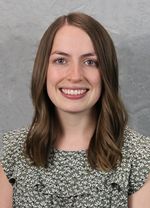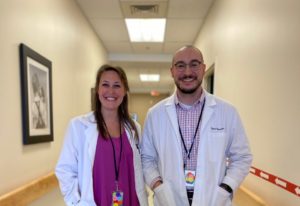What is the key to getting into optometry school? Networking! Not what you thought I’d say, right? When applying to schools, I was in frequent communication with my top choice program’s admissions teams. I would pick up the phone, ask for informational interviews and use them as an opportunity not only to learn more about the program, but to build rapport with the admissions teams and help them put a face to my name. Doing this made me feel comfortable on interview day because I already knew some of the people that were there, as well as navigate the application process with better guidance to have the best chances of acceptance.
Another thing that I found useful was utilizing email communication. During the
COVID-19 pandemic, when it was difficult to shadow in person in hospitals or clinics, I still made it a priority to network. I would get in touch with local practices and schedule informational interviews with doctors of optometry to learn more about the care that they specialize in.
Eventually, when it was safe to do so, I was able to go in and shadow when other applicants may have still been having a difficult time. This also broke down geographic barriers and allowed me to connect with optometrists all over the country whose specialties I took interest in. Highlighting these experiences in my application showed that I was a resourceful and outside thinker, and these were qualities that often stood out on interview day.
While it is important to network with the schools themselves, I also found it beneficial to network with other optometry students. Just before my AZCOPT interview, I received an email from the program with the breakdown of how the virtual interview day would go. Included in this email were the names of the three student panel members and their emails in case us interviewees wanted to reach out to them beforehand. Being quick to seize this opportunity, I looked up the student panel members on LinkedIn to see if I had anything in common with them, and I found out that one of them actually went to the same undergraduate institution as I did. I emailed her to introduce myself and on interview day, I had the advantage of already being connected to a student panel member.
Being quick to create and seize opportunities gave me greater advantages as an applicant; however, these skills have carried over into my career as a whole. I am still connected with the student panel member and she is currently in my top choice residency program which has further benefited me by allowing me to ask questions, get in touch with the right people and set myself up for the best chance of being matched with them in the future. About a month after receiving the news of my acceptance, I toured AZCOPT and there was a first-year student ambassador who stayed with me for the entirety of the tour. I made sure to stay in touch with her all throughout the summer. She helped me in my decision-making process, and when I began school, she became my anatomy and physiology tutor. Furthermore, at the start of school, the assistant dean sent out an “AZCOPT Survival Guide” and provided the email of the student who had written it. Again, I was quick to take the opportunity to connect with her, and now she too has become a close friend of mine as well as an amazing resource. These skills advanced my application and educational experiences, setting me up for success and excellence.
Overall, my advice for optometry school hopefuls would be to make your own opportunities instead of waiting for them to come to you! A quick phone call, a short meeting and staying connected goes a long way and you never know when those connections will come in handy.



 Lauren Bruehl, OD
Lauren Bruehl, OD








